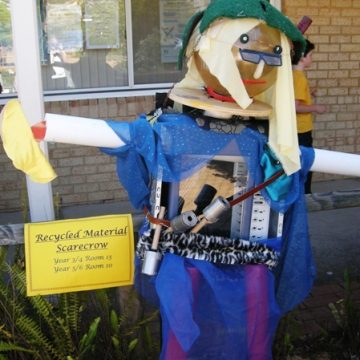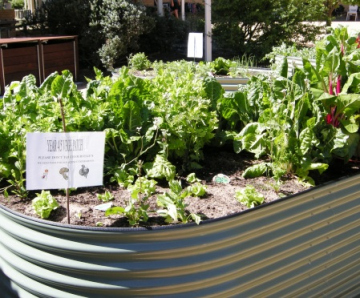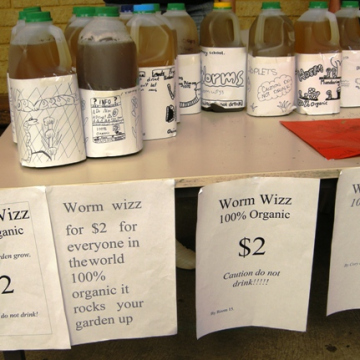Students and staff have been participating in the Waste Wise Schools Program since 2004. From that time, the school has embedded the Waste Wise philosophy of Reduce, Reuse and Recycle into the curriculum and across a number of learning areas. The school's dedication to reducing waste to landfill and closing the loop on organic recycling has led to number of outstanding projects benefitting the school and the wider community.

Students and staff at Mundaring Primary School have been participating in the Waste Wise Schools Program since 2004. From that time, the school has embedded the Waste Wise philosophy of Reduce, Reuse and Recycle into the curriculum and across a number of learning areas. The school's dedication to reducing waste to landfill and closing the loop on organic recycling has led to number of outstanding projects benefitting the school and the wider community.
Fruit and vegetables thrive in a number of raised garden beds found throughout the school. Design has been a key feature in placing these and centrally located beds are cleverly positioned around a tree to represent the petals of a flower. A skilfully designed and built three bay compost system has been established nearby and enables the easy transportation of compost to the garden beds.

Each year, Mundaring Primary School holds a "Sculpture in the School" afternoon showcasing the student's artwork. Recently, the celebration focused on the environment and the concepts of Reduce, Reuse and Recycle. The afternoon was a great success and highlighted how the concept of "waste" is limited only by our imaginations.
With the completion of the compost bays, raised garden beds and with the establishment of the worm farms, Mundaring Primary School was ready for the third and final $10,000 grant. The project undertaken proposed to extend the existing composting and permaculture garden bed facilities and to establish an adjacent outdoor classroom to incorporate the principles of Reduce, Reuse and Recycle. What better way to engage and enhance student learning than to allow experiential hands on activities.

Several worm farms made from old fridges supply nutrient rich castings for the fruit and vegetable gardens. The leachate (worm wiz) is collected, bottled with labels designed by the students and sold to the community.


